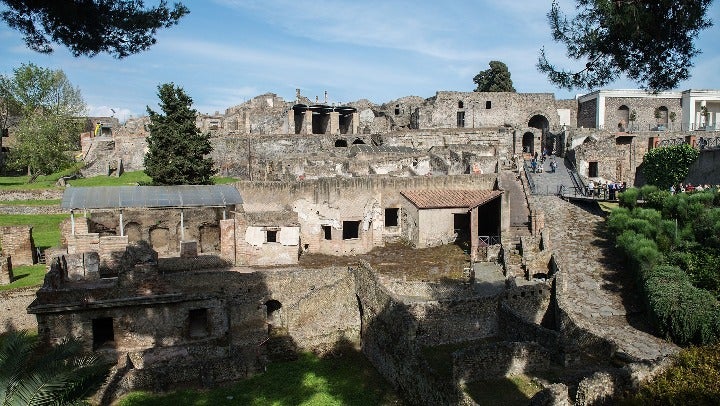The ruins of Pompeii have revealed two more tragic volcano victims
The latest victims discovered had chosen a small room as a refuge

Archaeologists in the ancient Roman city of Pompeii have discovered the remains of two more victims of the volcanic eruption almost 2,000 years ago, the site said on Monday.
The skeleton of a man and a woman were found in a small, makeshift bedroom in a villa which was being restructured when the eruption struck, the Pompeii archeological site said in a statement.
The woman was lying on a bed with gold, silver and bronze coins around her, along with jewelry including gold and pearl earrings. The man lay at the foot of the bed.
The once-thriving city of Pompeii, near Naples, and the surrounding countryside was submerged by volcanic ash when Mount Vesuvius exploded in AD 79.
The eruption killed thousands of Romans who had no idea they were living beneath one of Europe’s biggest volcanoes which buried the city in a thick layer of ash, preserving many of its residents and buildings.
The latest victims discovered had chosen the small room as a refuge, waiting for the end of the rain of rock fragments which had blocked the door and prevented them from escaping.

They were eventually buried under the flow of lava and other boiling hot material from the volcano, the statement said.
“The opportunity to analyse the invaluable anthropological data on the two victims ... allows us to recover a considerable amount of data on the daily life of ancient Pompeians”, site director Gabriel Zuchtriegel said. Ancient Pompeii, rediscovered only in the 16th century, has in recent years seen a burst of archaeological activity aimed at halting decades of decay and neglect.
Just last week a 37-year-old British tourist faced a hefty fine from the Italian authorities after carving his family’s initials onto a wall in Pompeii.
The unnamed man was caught by staff leaving his mark on the House of the Vestals – a Unesco World Heritage Site – and reported to the public prosecutor’s office in Torre Annunziata.
Photographs show the initials ‘JW’, ‘LMW’ and ‘MW’, believed to correspond with his daughters’ names, scratched next to the date (7 August 2024) and the word ‘Mylaw’.
Buildings in Pompeii, south of Naples, were preserved in volcanic ash after the eruption of Vesuvius in 79AD, and the site attracts millions of tourists visiting Italy each year. The defaced House of the Vestals was once used as a residence for officials of the imperial court.
Subscribe to Independent Premium to bookmark this article
Want to bookmark your favourite articles and stories to read or reference later? Start your Independent Premium subscription today.

Join our commenting forum
Join thought-provoking conversations, follow other Independent readers and see their replies
Comments